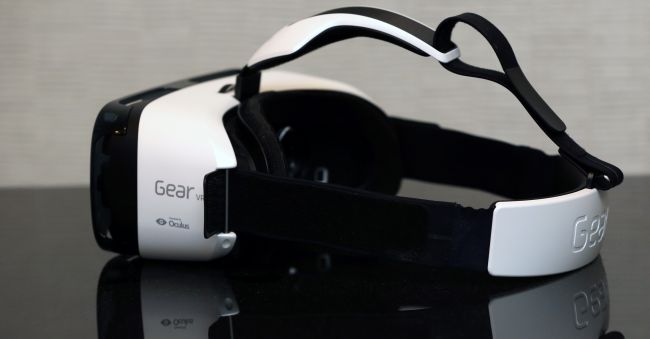ZeniMax sues Samsung over Oculus-derived Gear VR headset
The lawsuit claims the Gear headset infringes its property rights in the same way as the Oculus Rift.

ZeniMax did pretty well for itself in its lawsuit against Oculus VR, winning $500 million as a result of Palmer Luckey's violation of the non-disclosure agreement he signed prior to working on the Oculus Rift headset with ZeniMax, and specifically John Carmack, who was CTO of id Software at the time. Following the victory, ZeniMax chairman and CEO Robert Altman said the company would "consider what further steps we need to take to ensure there will be no ongoing use of our misappropriated technology."
Which leads us to round two: As reported by Polygon, ZeniMax has filed a new lawsuit against Samsung, maker of the Gear VR, which the suit alleges is "based upon ZeniMax's intellectual property and includes information obtained by Samsung from Oculus, Luckey, and Carmack in violation of the NDA, ZeniMax's copyrights, and Carmack's employment agreement."
Much of the suit's basis rests in facts established in the Oculus action, but it also relates a very interesting story of an "attack plan" formulated by Carmack and Matt Hooper, a former id Software designer who joined Oculus VR shortly after Carmack.
"On July 31, 2013, Carmack brought a former ZeniMax employee and friend, Matt Hooper ('Hooper'), who had been fired by ZeniMax, back into id Software's offices after hours to 'talk about Oculus.' Carmack was aware of the comprehensive security measures ZeniMax had to protect the confidentiality of its intellectual property, security measures Carmack knowingly and intentional violated," the suit says.
"After providing Hooper access to the locked premises, Carmack left Hooper unattended, free to examine ZeniMax confidential materials, at which point Hooper went alone into offices where ZeniMax maintained and stored confidential information. Later that night, Hooper emailed his contacts at Oculus disclosing that he and Carmack formulated an 'attack plan' for the mobile VR work that they would undertake together at Oculus, and which Oculus would subsequently provide to Samsung."
From there, it's a short step to essentially the same argument that ZeniMax made in the lawsuit against Oculus. "In creating the Samsung Gear VR, Carmack and Oculus used the VR code and proprietary techniques that Carmack had developed while employed at ZeniMax, and which were ZeniMax's exclusively owned intellectual property," the suit states. "Carmack confirmed this in later sworn testimony, when he admitted that he merely 'reimplemented' the same copyrighted code he had created while an employee of ZeniMax when he created the Oculus VR software used in the Samsung Gear VR."
The lawsuit makes for an unusual, and potentially very interesting, situation. Samsung is a legitimate heavyweight, and can bring far more resources to bear on a legal fight than Oculus could ever dream of. But the precedent established by the previous lawsuit puts it in a very difficult situation: There is, as far as I know, no question that the Gear VR is derived from the Oculus Rift, so if the Rift has already been found to infringe upon ZeniMax's intellectual property, then my inclination would be to mumble something about "fruit of the poisonous tree" and make the Law & Order noise as I head for the door.
Keep up to date with the most important stories and the best deals, as picked by the PC Gamer team.
Of course, it's not necessarily a done deal: Oculus has filed an appeal of the verdict against it, and Carmack has brought his own $22.5 million lawsuit against ZeniMax for money owed as a result of the id Software acquisition, which isn't really related but could presumably complicate things.
ZeniMax has demanded a jury trial in its suit against Samsung, and is seeking damages of various sorts, profits arising from the sale of the infringing properties, royalties, punitive damages, court costs, and so forth.

Andy has been gaming on PCs from the very beginning, starting as a youngster with text adventures and primitive action games on a cassette-based TRS80. From there he graduated to the glory days of Sierra Online adventures and Microprose sims, ran a local BBS, learned how to build PCs, and developed a longstanding love of RPGs, immersive sims, and shooters. He began writing videogame news in 2007 for The Escapist and somehow managed to avoid getting fired until 2014, when he joined the storied ranks of PC Gamer. He covers all aspects of the industry, from new game announcements and patch notes to legal disputes, Twitch beefs, esports, and Henry Cavill. Lots of Henry Cavill.

